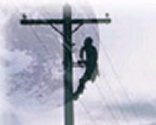 Not what you think. It's a move sure to drive privacy advocates crazy. The feds will use the state secrets provision to seek dismissal of two lawsuits against the government for the alleged NSA collection program. It's anticipated the feds will step in on behalf of the telephone companies, who are being sued for the same thing.
Not what you think. It's a move sure to drive privacy advocates crazy. The feds will use the state secrets provision to seek dismissal of two lawsuits against the government for the alleged NSA collection program. It's anticipated the feds will step in on behalf of the telephone companies, who are being sued for the same thing. Let's try to follow the national security bouncing ball. Former NSA Chief Michael Hayden was involved with the initial surveillance program through orders from Bush a month or two after 9/11. Negroponte, who also served as Ambassador to Iraq, was obviously onboard with the program early on.
With Goss out, Bush wanted Hayden for CIA Chief, keeping the circle small. In the run-up to his confirmation someone re-leaked the NSA collection program to USA Today, and the media storm ensued. The adminstration then agreed to brief the Intelligence Committee members of both House and Senate about the program, they did, and Hayden sailed through confirmation by a landslide. The media yawned as the storm subsided.
That leads us to this:
Director of National Intelligence John D. Negroponte invoked the state-secrets privilege on behalf of the administration, writing that disclosure of such information would cause "exceptionally grave damage" to national security.Furthermore,
Justice Department attorneys said in their legal brief that the legality of the president's actions could be properly judged only by understanding "the specific threat facing the nation." They noted: "That understanding is not possible without revealing to the very adversaries we are trying to defeat what we know about them and how we are proceeding to stop them."That sounds a tad specific, perhaps enough to shut the partisan traps of a few congressmen who were formerly trying to score points against Bush. And apparently it worked.
Perhaps we're better off not asking or knowing, but such possible threats give one a renewed appreciation for the men and women searching them out on the front lines. Assuming the threats exist, of course.

No comments:
Post a Comment